Twelve Days That Didn’t Change the World
Appreciating nature’s beauty while we have two years left to save the planet
Leaving behind my island’s broad white beaches, wild dunes, and captivating wetlands, I started a twelve-day journey. The travel was immersive; my days abroad left me with more impressions than I could process. There was less time to write, but I still found moments to share some of life’s beauty. As so often before, I alternated these thoughts with my ever-increasing concerns about the impacts of our warming planet.
I left my island while nature blossomed into a colorful springtime and migrating birds pit-stopped in the Prunje Polder to forage Dutch worms and other local delicacies on their way North.
I also left a dusty, unfinished house where three brawny craftsmen plastered the newly built walls and constructed a wooden ceiling, resembling the original from more than a century ago when the house was built with its Art Deco elements.
Once a beacon of modernity amidst the island’s seclusion, agriculture, and destitution, the house now stands as a relic of an era long past. As the island prospers and welcomes tourists, the house badly needs renovation to meet the standards of the 21st century.
On the first day, I packed my light backpack in minutes: my passport, earplugs, keys, a water bottle, and a book about climate change that unsuccessfully tried to convince me not to worry too much. By walking, bus, train, and plane, I arrived on the other side of the Atlantic for another two-hour bus ride, where I was picked up for a ride to the other place I consider home.
This year’s predicted extremely active Atlantic hurricane season
My final destination was Colorado. It was either a coincidence or a sign of times that while I crossed the unusually warm Atlantic, I read that weather forecasters at Colorado State University predicted an extremely active Atlantic hurricane season for this year. They referred to the high sea surface temperatures of the Atlantic Ocean as an essential factor in their dire prediction.
The irony of reading this news flash while seated in a plane was not lost on me. I have drastically reduced my flights, declined numerous invitations to conferences in spectacular locations that entailed flying, and have not accepted any free-offered business class ticket for more than a decade because it leads to more emissions if we all need more space for our seats. Still, I fly within the limits and criteria I set for myself.
It was still day one, a long one, extended by flying west over an easterly spinning planet and on the edge of a thin layer of warming atmosphere surrounding our challenged Earth like a skin around an apple. Yet, the analogy falls short in one noticeable aspect: the skin of an apple is ten times thicker than the Earth’s atmosphere.
That realization may help us grasp how we can change the atmosphere’s composition into a dangerous mix that will fundamentally change our living conditions and jeopardize the existence of countless species, including our own.
A Dutch astronaut once vividly described the delicate fragility of our atmosphere during a dinner conversation at a Planetary Security Conference. From the vantage point of space, he remarked, the Earth’s protective shield resembled nothing more than a flimsy layer of powdered sugar delicately dusting the surface of our planet. Everything we hold dear, nature, loved ones, or your morning cup of coffee, is in that thin veil that separates our earthly existence from the vast, cold emptiness of the universe.
Early creative thinking
Arriving in Montreal about the same time I had left Europe, it felt like I only jumped 30,000 feet up while Earth rotated under me. It brought back a happy childhood memory of running on a barrel in the playground and watching it spinning below me while I joyfully lifted my feet into the air.
Years later, the playground memory inspired me to ask my physics teacher a challenging question: how could we be sure that a bus was truly traversing the Earth’s surface? In my youthful imagination, I entertained the idea that my bus seat served as a fixed point in the universe, while the turning wheels beneath us simply allowed the Earth to rotate beneath our stationary position.
Unfortunately, my inquiry was met with skepticism rather than enlightenment, even more so after I referred to the playground barrel experience to make my argument more convincing. I found it hard to convince the balding teacher with his rimless glasses, who never entertained creative thinking or any progressive thoughts; as a staunch adherer to conventional wisdom, he was the last to entertain unorthodox theories.
Thinking of him nearly half a century later, I remember the short man as one of the last to teach in a three-piece suit in our 1980s classroom, contrasting with our oversized, colorful clothes and the sky-high hairstyles of the girls as you still see in movies from the early eighties. He was a relic of a bygone era and the least likely to be entertained by unorthodox theories about spinning barrels, bus wheels, or planets.
Physics was clearly not my thing. I decided to study geography since I ordered memories in my brain by location and was fascinated by maps, travel, and irrelevant facts about places I would never visit.
On the second day of my journey, I was out in nature and spent part of the day in a tranquil village along the Gatineau River, where its quiet setting makes it look like a lake. I enjoyed being in Canada, the other country that’s my home. Nature is always close by and on a vastly different scale from what we are used to in the densely populated Netherlands.
Spring is a much-anticipated event in Quebec since it starts late after the long winter, leaving precious little time for the flowers and trees to do all their chores of life before winter sets in.
I observed the first buds and tiny green dots emerge in the vast grey and brown patches on the surrounding hills. On secluded South-facing hills, I noticed emerald hues had already chased away the dull grey at the bottom of the trees in an upward-fought battle of the colors; hopeful new life gained territory on the somber shades of winter.
Tulip bulbs popped up above the soil in the small gardens of the houses near the water, each mimicking a submarine commander opening the hatch to survey the surroundings before emerging fully.
The fragrance of fresh life gave me hope for better times, but I wondered what the trees and plants would smell like. Would they be excited by the higher concentrations of CO2 that they might welcome since it’s a vital element for their growth?
If so, their potential gratitude for our emissions should be directed towards the tiny group of 57 producers responsible for a staggering 80 percent of the world’s CO2 emissions from fossil fuels and cement production.
The Carbon Majors report by InfluenceMap should have been the main news of day two of my trip, but you likely missed it since climate news doesn’t tend to go viral on social media.
Africa in the news
On day three, my laptop competed for attention with Luna, my loyal lapcat, who insisted on claiming her rightful place for love and cuddles. My couch inactivity starkly contrasted with the 27-year-old extreme marathon runner Russ Cook. He ended that day his epic run along the entire length of Africa. It took him nearly a year to cross 16 countries, and he was the first to succeed. Many fans followed his progress, and I assume so did the man who robbed him at gunpoint.
On day three of my trip, Russ Cook’s run was likely the only news you might remember from all of Africa, but who remembers the nearly one hundred people who drowned near Mozambique when their overloaded fishing boat capsized? From climate change impacts to traffic incidents, calamities in the West get far more attention than human drama or misery in the Global South.
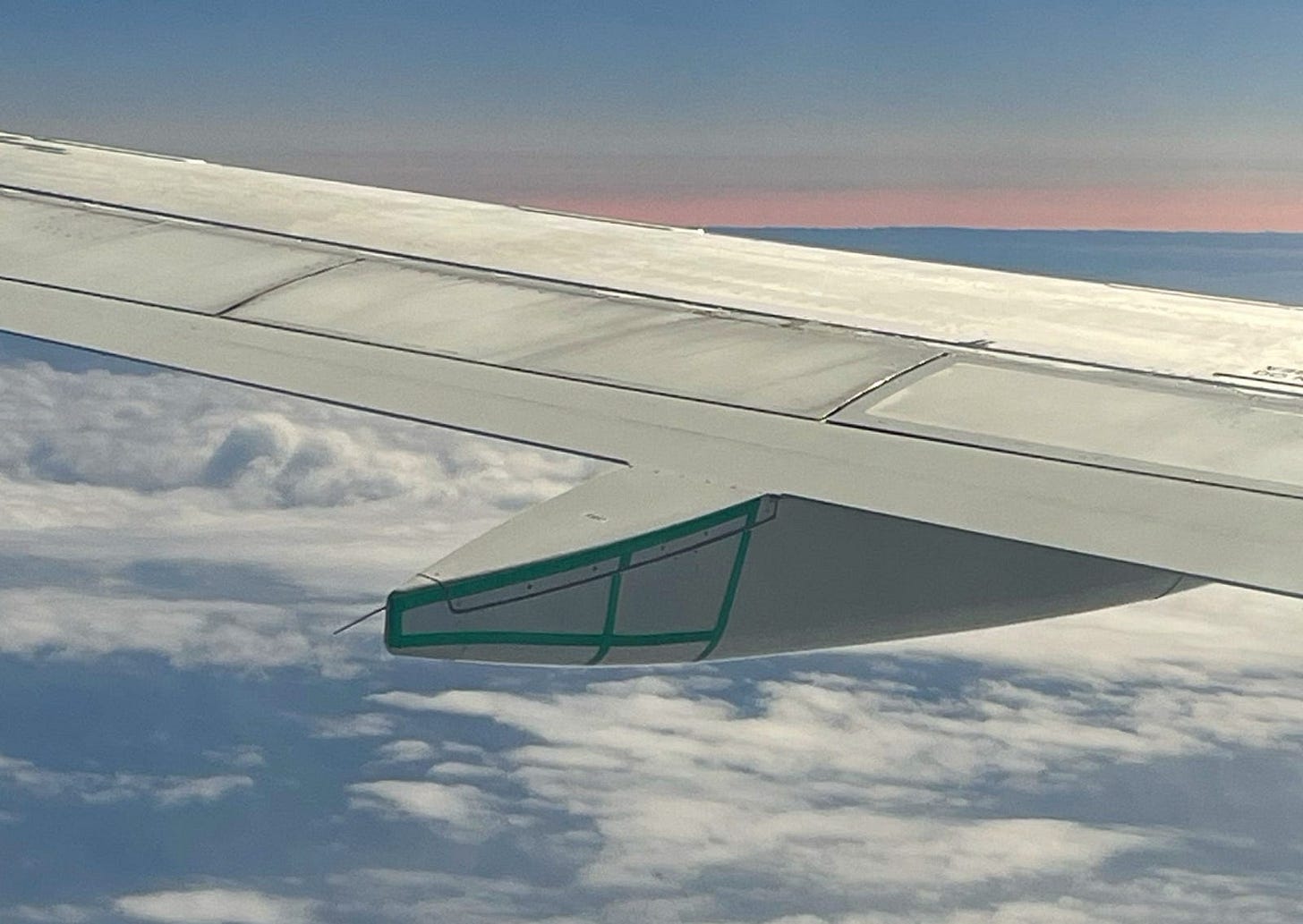
Flying during a solar eclipse is likely a once-in-a-lifetime event. I did this on day four on my way to Denver. Curious to experience this, I booked a window seat on the plane’s left side to see towards the eclipse zone to the south. I had no idea what I would see from this elevated position. There was less light but not the near-total darkness I had hoped for.
Although that was a disappointment, the spectacular marvel to admire was much further out on the horizon; for about five minutes, I saw a sunset on the horizon. And like millions of others in North America, I could see the partial eclipse through my dark glasses. It looked like a giant had taken a bite out of a cookie.
I reached Boulder, Colorado, in the evening. I was warmly welcomed by dear friends whom I met many years ago when I arrived on the same spring evening at the same front porch with its colorful art and a sweet, intelligent dog.
Leo recognized me and wagged his tail. When I sat down to listen to my friends’ stories and share my own, he found a spot under my chair, warming my feet and not leaving until bedtime when it was his duty to chase the rabbits and raccoons from the garden.
I stayed five days in Boulder, where I spent the first day in Pearl Street’s coffee shops, trying to find a place to write, but I used most of my time to meet with old and new friends in this friendly city. It was the day a group of elderly Swiss women won in the European Court of Human Rights, which agreed with their arguments that the Swiss government’s efforts to combat climate change had been inadequate. And as if to underline their plea, scientists confirmed the same day that March 2024 was the warmest ever, making it the tenth month in a row to set a monthly record.
The Conference on World Affairs
For the next four days, I participated in the 76th edition of the Conference on World Affairs, organized by Colorado University in Boulder and the local community. All the panels on diverse topics are worth watching and will soon be available on YouTube. Here is an example of one that is already produced. I spoke on six of these panels and separately for a class of students on career plans on a warming planet.
These were the days that Arizona reinstated a 160-year-old abortion ban, Trump’s ex-finance chief was sentenced to five months in Rikers, O.J. Simpson died, and the UN Climate Chief said we have two years left to save the planet. These are just four memories of the news of those days that were all referred to during the Conference. They are a reminder that many world affairs are the affairs of the world’s most powerful country and that the national news in the U.S. is far more about legal issues than in Europe.
On days 10 and 11, I spent time in Ottawa again; I had a wonderful dinner with inspiring people, followed by coffee with dear friends the next morning. While traveling back to the Dutch island, I read that Biden has narrowed Trump's poll lead.
I have nothing but positive memories of everyone I have met in the U.S., and I am still trying to understand the political preferences of American voters. Boulder seems to be a rare MAGA-free zone in the heart of the U.S., but that is just part of the story.
Last year, I traveled for twelve days through the American West, where I saw many flags, banners, and cars of Trump fans, but even there, I only encountered kind people. My fascination and fear for the Trump cult haven't diminished, and my questions about the historical folly of today's America have only increased; why would kind people vote for someone who is hardly ever described as being kind?
My experiences these twelve days were both local and positive, while the world affairs I followed in the news mainly were profoundly worrying. As I have noticed, there is so much beauty in the details we see daily, while the global picture looks grimmer than at any moment I can remember.
The Conference on World Affairs bridges both experiences; meeting so many inspiring people is highly motivating, even though we discuss the worrying issue of global challenges.
I write this newsletter because if we work together, we can do better on this beautiful but fragile planet.
You can subscribe for free to receive this newsletter in your email, but please consider supporting this initiative by paying for a subscription. The paying subscribers make it possible for those who can't afford it to read for free.
One from March:
Life Lessons in These Foggy Times Where Confusion Rules While Clarity Fades
Watch your step when your clear view vanishes, and your once-familiar world becomes murky and disorienting. This happens in politics and the media when powerful forces create confusion, leaving the public bewildered in a misty world, unaware of the negative consequences awaiting them.
One from February:
Finding Beauty in Kindness: A Reflection on Compassion
When I opened the curtains this morning, I enjoyed the sight of the sun casting its warm glow on the sleepy streets of my village. Silhouetted against the vibrant backdrop of the dawn sky, unremarkable rooftops that I had never given particular attention to suddenly became essential in framing the daybreak's warmth and soft light.


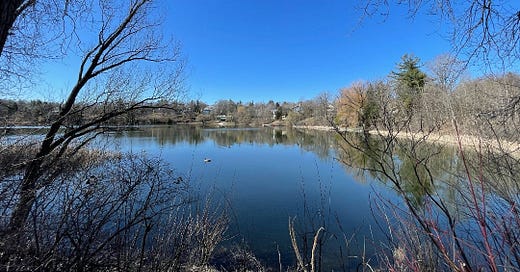


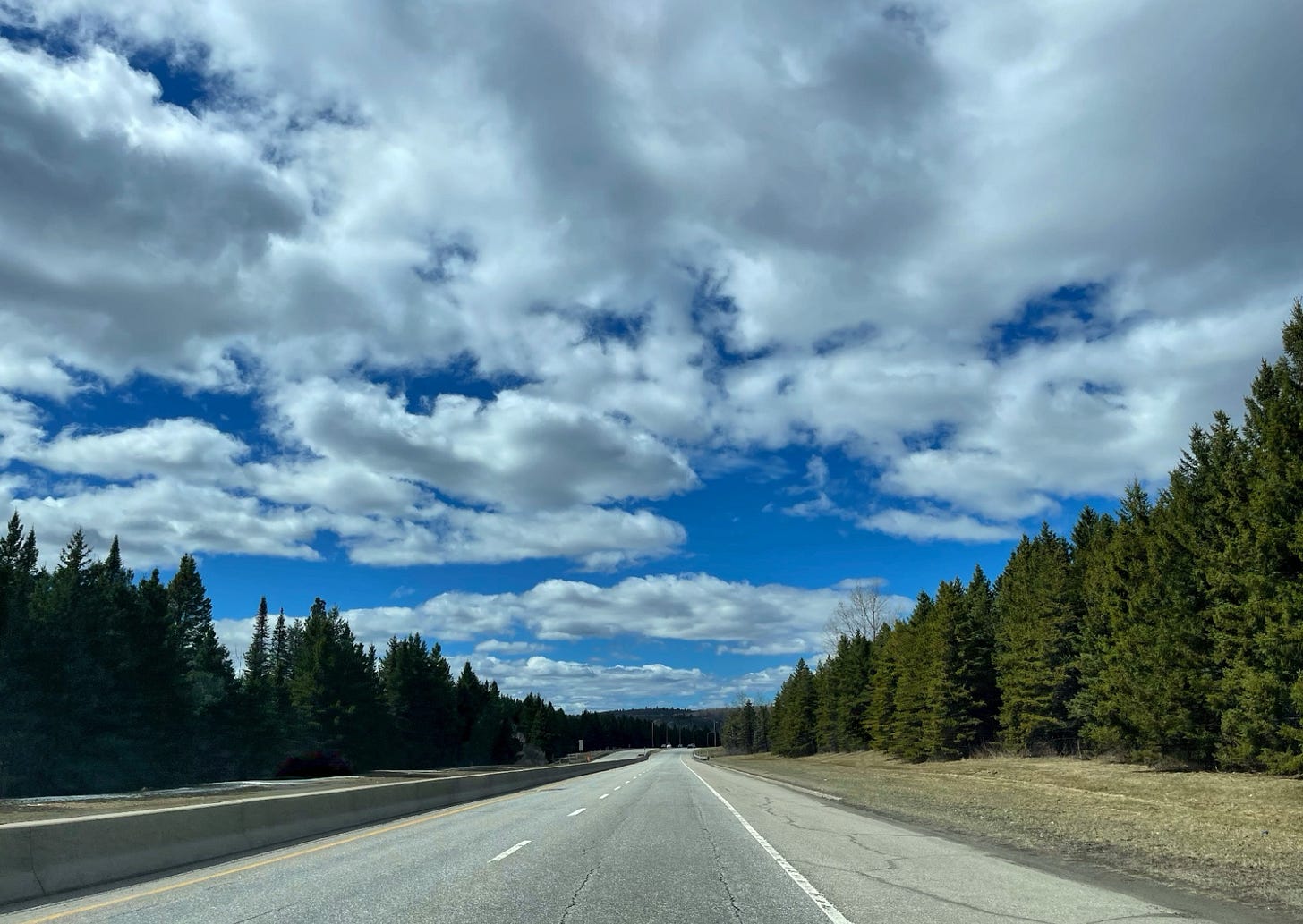

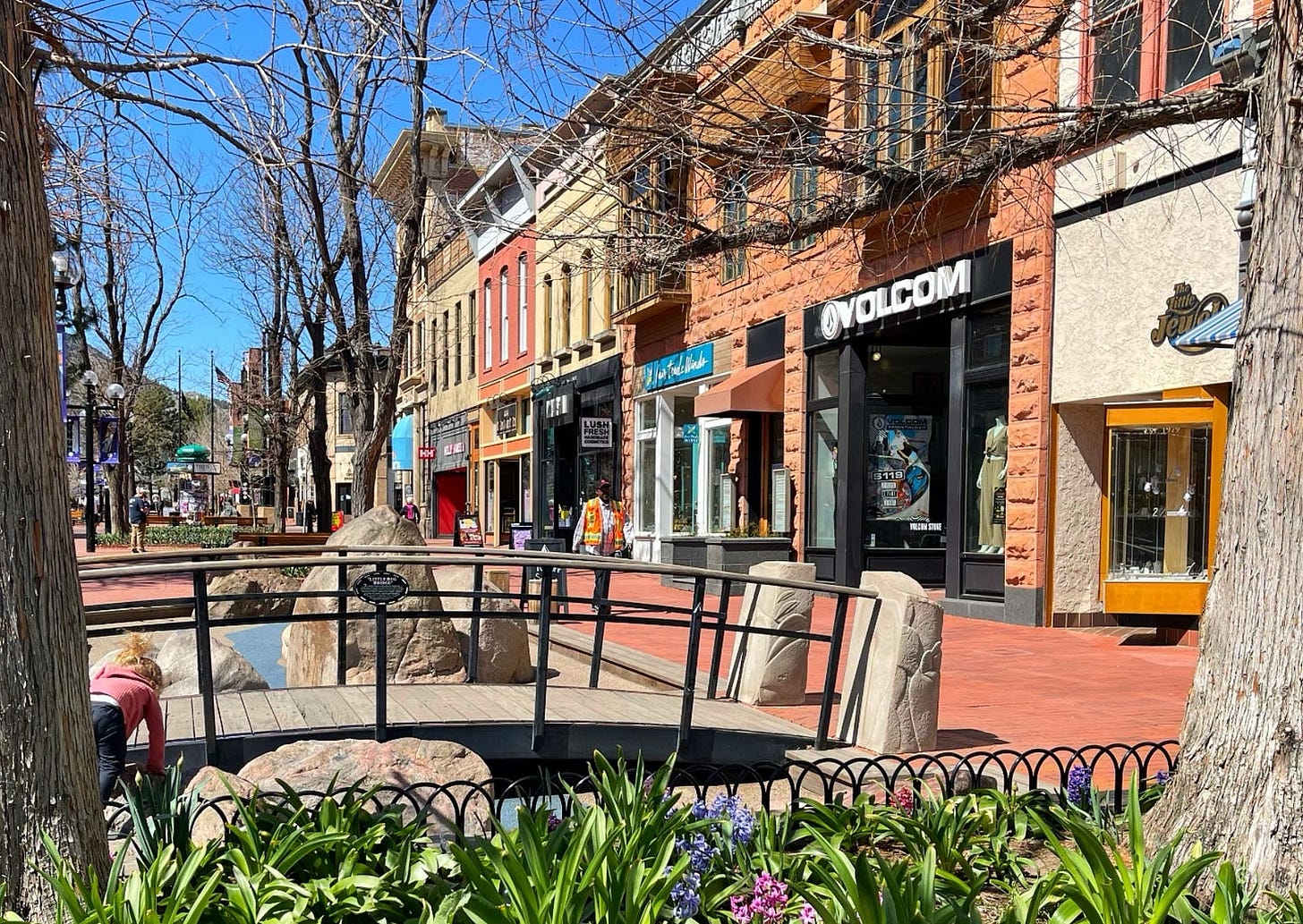

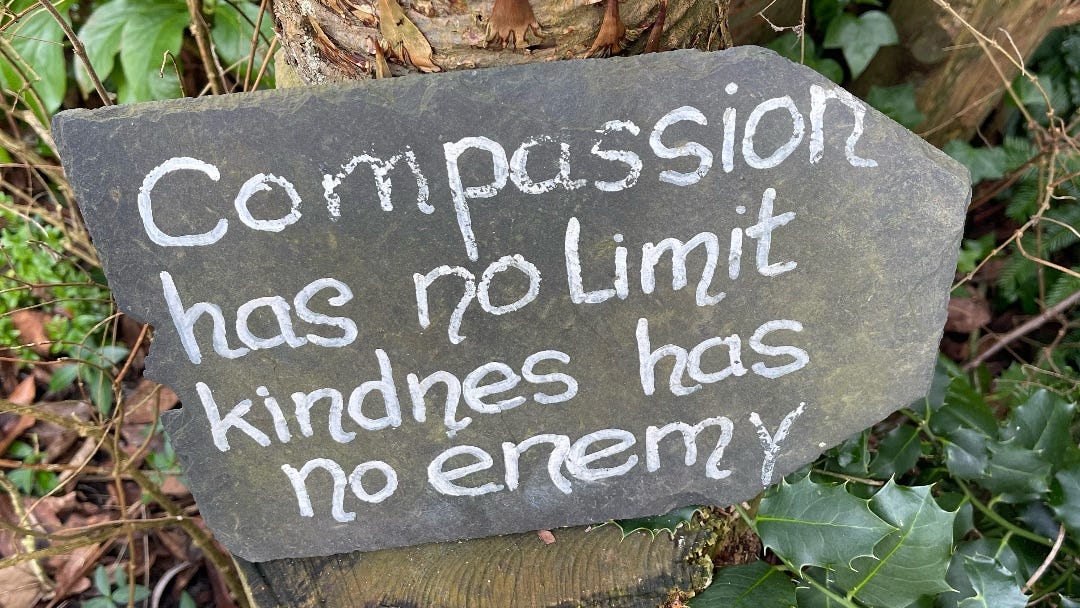
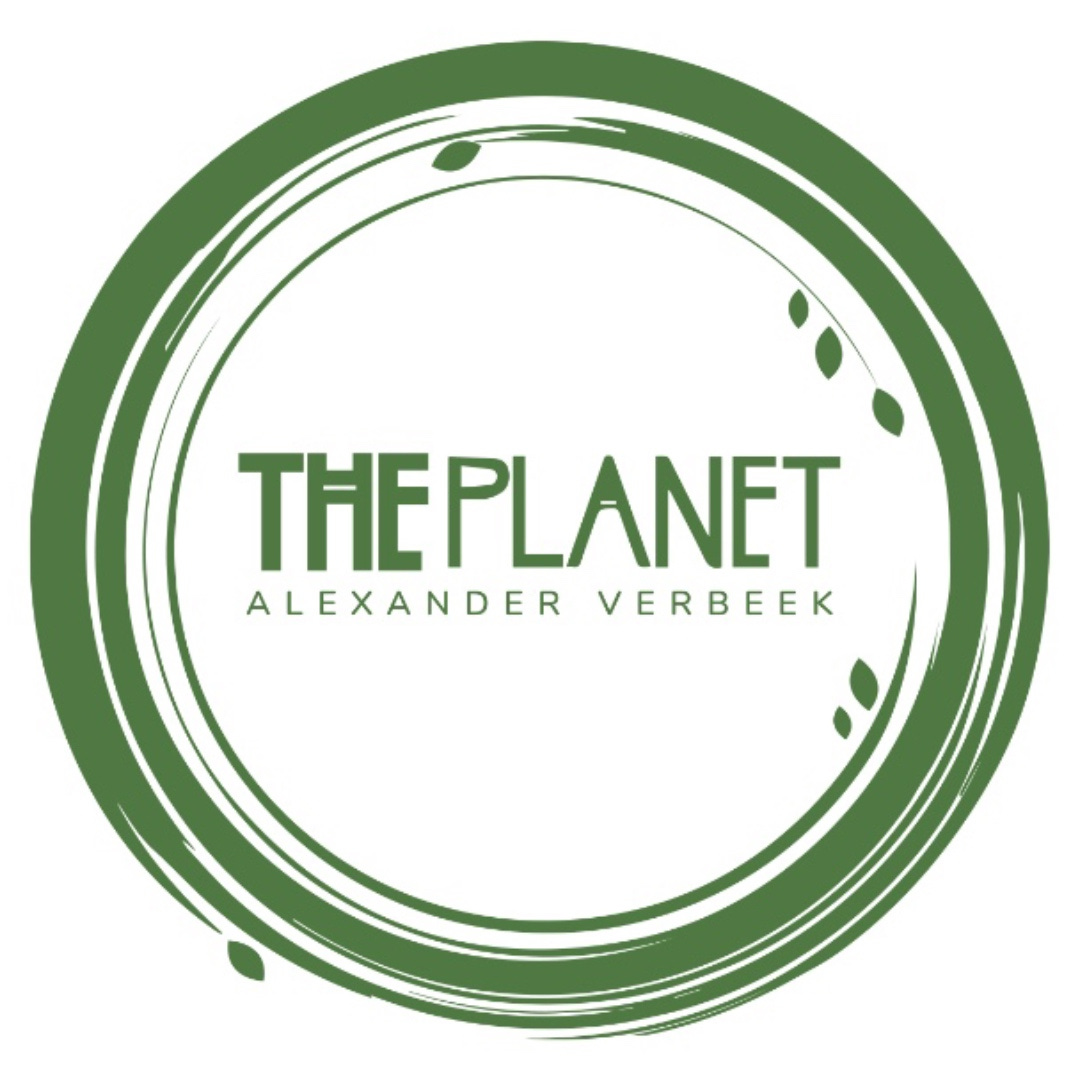
🌻 I followed your Conference on World Affairs video link.
Also, I watched the other videos with you as one of the panel guest speakers. 🙏 Awesomeness!
Lots more topics from which to choose and each panel is fascinating. 💯
I will be busy watching (all of them) in the coming weeks 🎥 ☺️
Glad to hear you returned home safely after a stimulating trip. You were missed on Patreon and The Planet while your days were filled with other important activities. Thanks for the splendid summary of your 12 days, and as always, for providing some interesting triggers for further reflection. I look forward to more anecdotes as time permits.